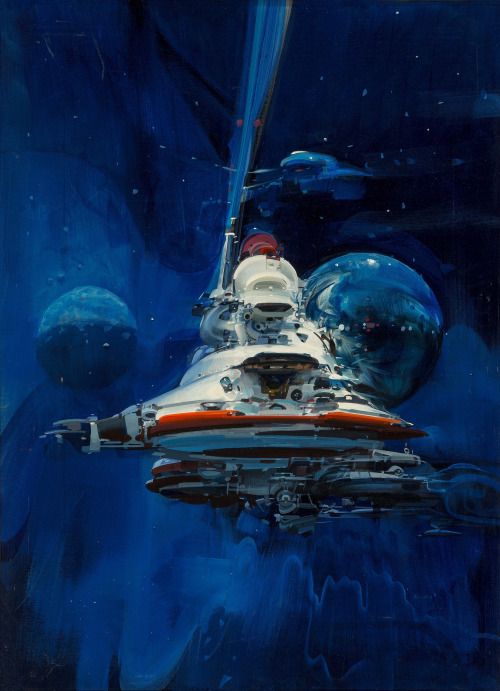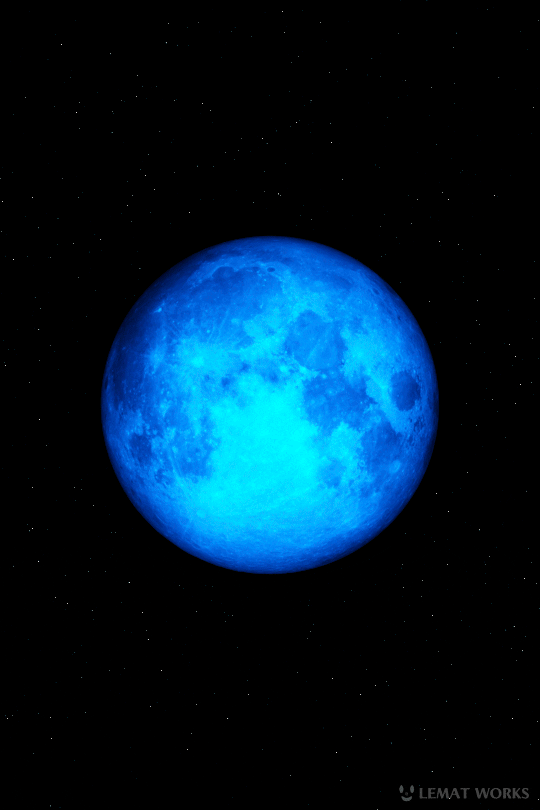USS Sulaco Military Starship

USS Sulaco Military Starship
Movie: Aliens UI Design: Fantasy II Film Effects, L.A. Effects Group, Stan Winston Studio
More Posts from Epic-flight and Others
This impressive storm captured by Geoff Green over West Australia in August 2018, gives you an idea of the huge frequency at which lightning happen in an extreme weather event
Instagram: wonders_of_the_cosmos

Another beautiful space painting from my friend Steve R Dodd. ‘The Beacon’. Originally displayed in NASA’s 25th anniversary art show, Cleveland Museum of Natural History (1980s)

Young Stars of NGC 346 : The massive stars of NGC 346 are short lived, but very energetic. The star cluster is embedded in the largest star forming region in the Small Magellanic Cloud, some 210,000 light-years distant. Their winds and radiation sweep out an interstellar cavern in the gas and dust cloud about 200 light-years across, triggering star formation and sculpting the region’s dense inner edge. Cataloged as N66, the star forming region also appears to contain a large population of infant stars. A mere 3 to 5 million years old and not yet burning hydrogen in their cores, the infant stars are strewn about the embedded star cluster. In this false-color Hubble Space Telescope image, visible and near-infrared light are seen as blue and green, while light from atomic hydrogen emission is red. via NASA

Design graphics Geya Shvecova (Smoky_MOON_171219)

Lost Time.
You can get this GIF as a phone wallpaper for free through the Zedge app.
You can also get this GIF as a looping 1080p video if you support me on Patreon.
Twitter / Instagram / Shop / Gumroad / Patreon / Zedge

JOHN BERKEY Unknown Acrylic/Casein 29.5″ x 21.625

Rick Guidace’s concept art depicting the rings of Uranus in polar rotation

‘uplink’
Boo-tiful Ring Galaxies

A ghoulish secret lurks within each of these gorgeous galaxies. Their rings are dotted with stellar graveyards!

These objects are called ring galaxies, and scientists think most of them form in monster-sized crashes. Not just any galaxy collision will do the trick, though. To produce the treat of a ring, a smaller galaxy needs to ram through the center of a larger galaxy at just the perfect angle.

The collision causes ripples that disturb both galaxies. The gravitational shock causes dust, gas, and stars in the larger galaxy’s disk to rush outward. As this ring of material plows out from the galaxy’s center, gas clouds collide and trigger the birth of new stars.

In visible light, the blue areas in the galaxies’ rings show us where young, hot stars are growing up. Faint, pink regions around the ring mark stellar nurseries where even younger stars set hydrogen gas aglow.
The newborn stars come in a mix of sizes, from smaller ones like our Sun all the way up to huge stars with tens of times the Sun’s mass. And those massive stars live large!
While a star like our Sun will last many billions of years before running out of fuel, larger stars burn much brighter and faster. After just a few million years, the largest stars explode as supernovae. When massive stars die, they leave behind a stellar corpse, either a neutron star or black hole.

When we turn our X-ray telescopes to these ring galaxies, we see telltale signs of stellar remnants dotted throughout their ghostly circles. The purple dots in the X-ray image above are neutron stars or black holes that are siphoning off gas from a companion star, like a vampire. The gas reinvigorates stellar corpses, which heat up and emit X-rays. These gas-thirsty remains are beacons lighting the way to stellar graveyards.
Spiral galaxies — like our home galaxy, the Milky Way — have curved arms that appear to sweep out around a bright center. The dust and gas in those spiral arms press together, causing cycles of star formation that result in a more even mix of new stars and stellar corpses scattered throughout our galaxy. No creepy ring of stellar corpses here!
To visit some other eerie places in the universe, check out the latest additions to the Galaxy of Horrors poster series and follow NASA Universe on Twitter and Facebook for news about black holes, neutron stars, galaxies, and all the amazing objects outside our solar system.
Make sure to follow us on Tumblr for your regular dose of space: http://nasa.tumblr.com
-
 boucoupdinkydau reblogged this · 4 years ago
boucoupdinkydau reblogged this · 4 years ago -
 epic-flight reblogged this · 4 years ago
epic-flight reblogged this · 4 years ago -
 boucoupdinkydau reblogged this · 5 years ago
boucoupdinkydau reblogged this · 5 years ago -
 bachatanero liked this · 7 years ago
bachatanero liked this · 7 years ago -
 foab30 reblogged this · 7 years ago
foab30 reblogged this · 7 years ago -
 spaceships-spacestations reblogged this · 7 years ago
spaceships-spacestations reblogged this · 7 years ago -
 reignquest liked this · 8 years ago
reignquest liked this · 8 years ago -
 i-riotseverywhere-posts reblogged this · 8 years ago
i-riotseverywhere-posts reblogged this · 8 years ago -
 bat-jesus-blr liked this · 8 years ago
bat-jesus-blr liked this · 8 years ago -
 messias123615-brazil-blog reblogged this · 8 years ago
messias123615-brazil-blog reblogged this · 8 years ago -
 messias123615-brazil-blog liked this · 8 years ago
messias123615-brazil-blog liked this · 8 years ago -
 haveakiki12 reblogged this · 8 years ago
haveakiki12 reblogged this · 8 years ago -
 haveakiki12 liked this · 8 years ago
haveakiki12 liked this · 8 years ago -
 melimelo85 reblogged this · 8 years ago
melimelo85 reblogged this · 8 years ago -
 rubberqueen79 liked this · 8 years ago
rubberqueen79 liked this · 8 years ago -
 galactus12 liked this · 8 years ago
galactus12 liked this · 8 years ago -
 melimelo85 liked this · 8 years ago
melimelo85 liked this · 8 years ago -
 starvingartistwatchingandre-blog liked this · 8 years ago
starvingartistwatchingandre-blog liked this · 8 years ago -
 nestje reblogged this · 8 years ago
nestje reblogged this · 8 years ago -
 quin-chance reblogged this · 8 years ago
quin-chance reblogged this · 8 years ago -
 alexbyrth liked this · 8 years ago
alexbyrth liked this · 8 years ago -
 sirkg reblogged this · 8 years ago
sirkg reblogged this · 8 years ago -
 sirkg liked this · 8 years ago
sirkg liked this · 8 years ago -
 thenewcomic-blog liked this · 8 years ago
thenewcomic-blog liked this · 8 years ago -
 reservedforinventivetitle reblogged this · 8 years ago
reservedforinventivetitle reblogged this · 8 years ago -
 nestje reblogged this · 8 years ago
nestje reblogged this · 8 years ago -
 orvene liked this · 8 years ago
orvene liked this · 8 years ago -
 kamenotaku liked this · 8 years ago
kamenotaku liked this · 8 years ago -
 ororosamurai-blog liked this · 8 years ago
ororosamurai-blog liked this · 8 years ago -
 ghostlyperfectioncollective-blog liked this · 8 years ago
ghostlyperfectioncollective-blog liked this · 8 years ago -
 mohammadrosalia85-blog liked this · 8 years ago
mohammadrosalia85-blog liked this · 8 years ago -
 zantonioz liked this · 8 years ago
zantonioz liked this · 8 years ago -
 towritelesbiansonherarms reblogged this · 8 years ago
towritelesbiansonherarms reblogged this · 8 years ago -
 m00nlamp liked this · 8 years ago
m00nlamp liked this · 8 years ago

